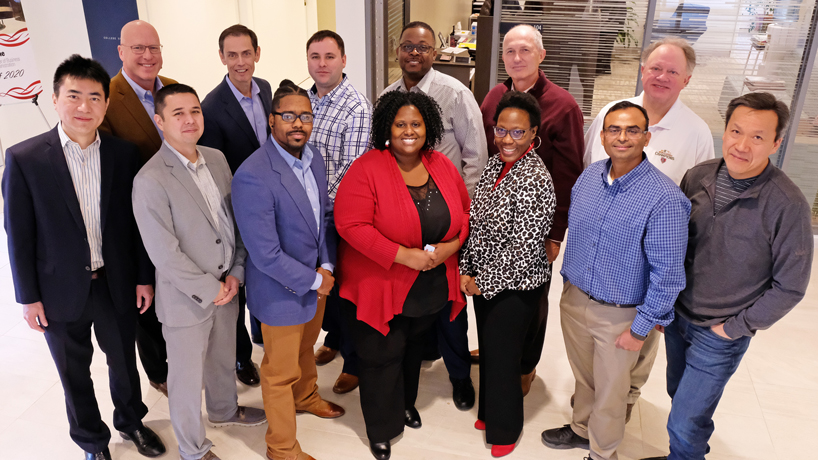
CEO Magazine has ranked the UMSL DBA program among the world’s best for five consecutive years. The program is designed to train engaged management scholars in a learning community supported by select internationally renowned faculty with close ties to business and recognized for their research impact and expertise in graduate education. (Photo by August Jennewein)
CEO Magazine listed the Doctor of Business Administration program at the University of Missouri–St. Louis as one of the premiere DBA programs in the world for the fifth straight year.
UMSL’s program was among 36 in North America included on its 2022 Global DBA Listing. The rankings are based on accreditation, quality of faculty, geography and international standing.
“This five consecutive years of ranking is a testament to the quality and impact of scholarly research our students are creating,” said Ekin Pellegrini, the associate dean for graduate programs in the College of Business Administration and founding director of the UMSL DBA, which began in 2017. “We are training practitioner scholars in the DBA program, and this global ranking provides another seal of approval for the quality of instruction our students receive at UMSL DBA.”
The three-year program is for working professionals interested in advancing their knowledge and research skills and innovating in their industry. It has attracted participants from nearly 20 states. Its dual accreditation makes it a stand out.
“UMSL is the only public university in the region to carry dual accreditations from the Association to Advance Collegiate Schools of Business accreditations for both business and accounting programs at the undergraduate and graduate levels,” Pellegrini said. “That places us in the top 2% of business schools in the world.”
The professional impact of the program has been felt by alumni from a variety of industries.
Behavioral scientist and Ted Talk presenter Kevin Sansberry II, who was part of the first DBA cohort in 2017, was initially drawn to the program not only because of the accreditation and rigorous curriculum but also the flexibility that fit his schedule. Additionally, he felt the program honed in on what he wanted to accomplish. He’d gotten his MBA and was figuring out how to continue his studies toward a doctorate in a program that had an emphasis on research and data analysis.
“It was kind of a no-brainer to reach out because they spoke my language,” Sansberry said. “It was for practitioners who wanted to continue being a practitioner. It was research based and research driven.”
Sansberry, who has an extensive background in human resources, started a consulting company, KEVRA, while enrolled in the DBA program. Sansberry’s business provides executive coaching and helps companies “effectively transform their organizational culture.” Learning how to skillfully research, gather and analyze data in a compelling way for prospective clients has helped him secure contracts and grow his business.
The program also helped Sansberry develop a wider perspective when assessing an organization and its needs.
“It equipped me to be holistically business focused and look at the entire system,” Sansberry said.
Along with the practical teachings of the program, Sansberry appreciated the attentiveness of the faculty and staff.
“They took care of us, even down to my Oreo cookies,” Sansberry said, joking about the program’s concierge services, which include everything from providing course materials, statistical analysis software, interview data transcriptions and conference travel arrangements to snacks during monthly weekend sessions on campus. “They made sure Kevin was doing OK, you know? Because it was a tough program. All the faculty really went above and beyond to support us because doing this work on the weekend.”
The challenging coursework coupled with commuting and balancing the program with other commitments fostered an environment where students turned to each other for support, advice and information sharing. This contributed to creating lasting friendships among the students.
Pellegrini believes the community of support is also a factor in the program’s success.
“People really feel connected to the program, you know?” Pellegrini said. “Even after they graduate, they still come back to visit us and each other. There is a DBA conference annually in September, and our alumni go to the conference because they want to see each other. These are lifelong bonds, and these are really unique people – these lifelong learners.”
The culture of the program is something Sansberry valued as well.
“These are friends that I made,” Sansberry said. “And we share struggles, worries and learning. Having that cohort so tightly knit, it was all a big learning environment.”














